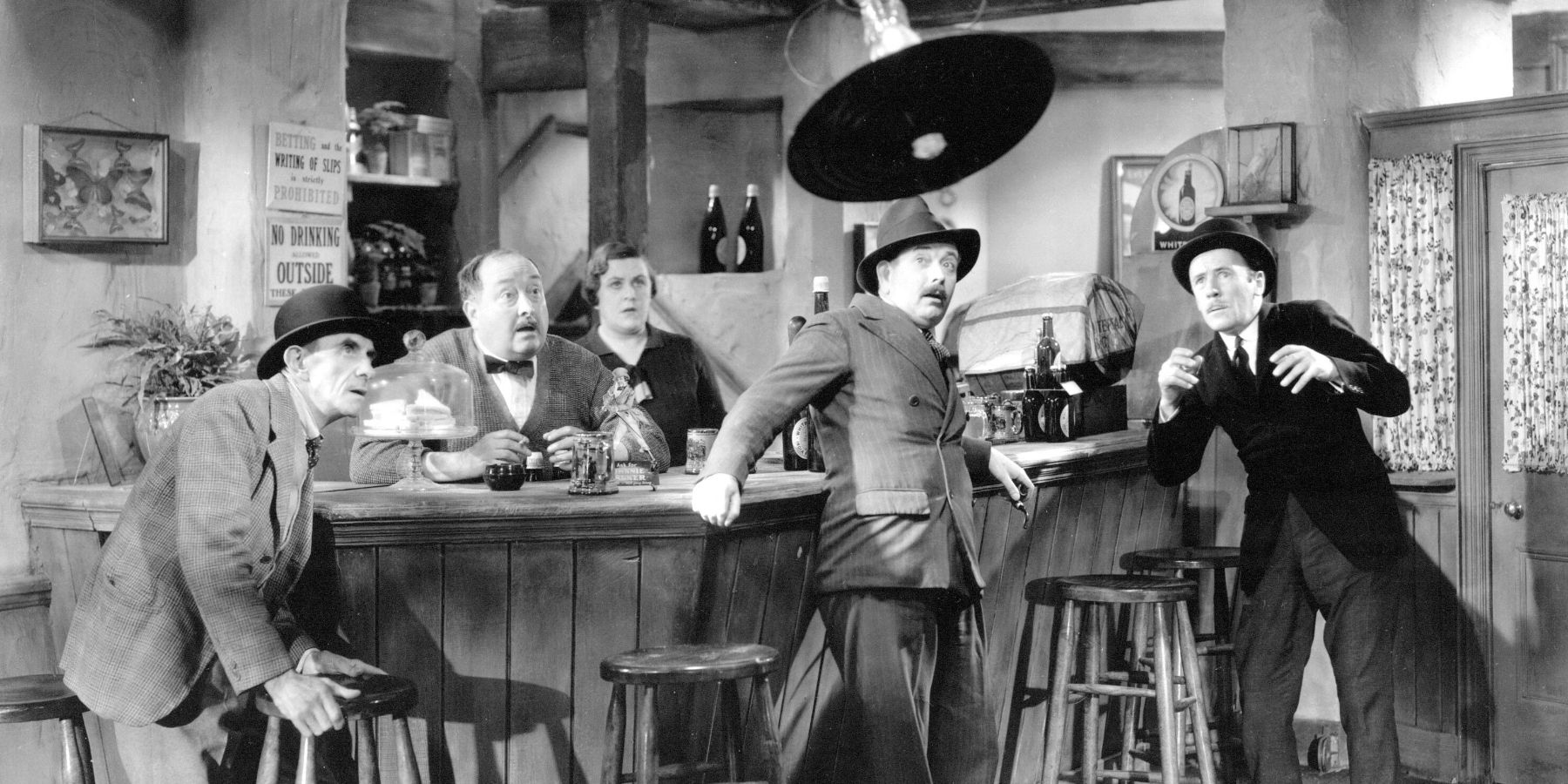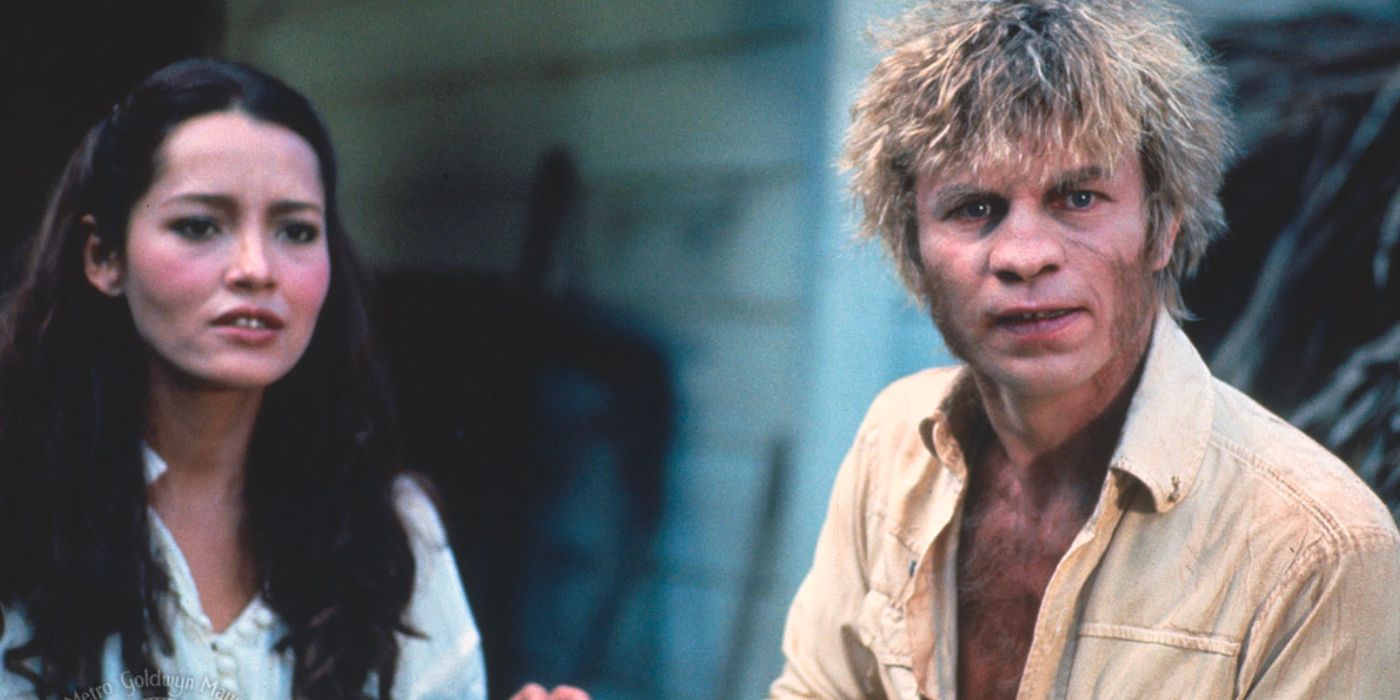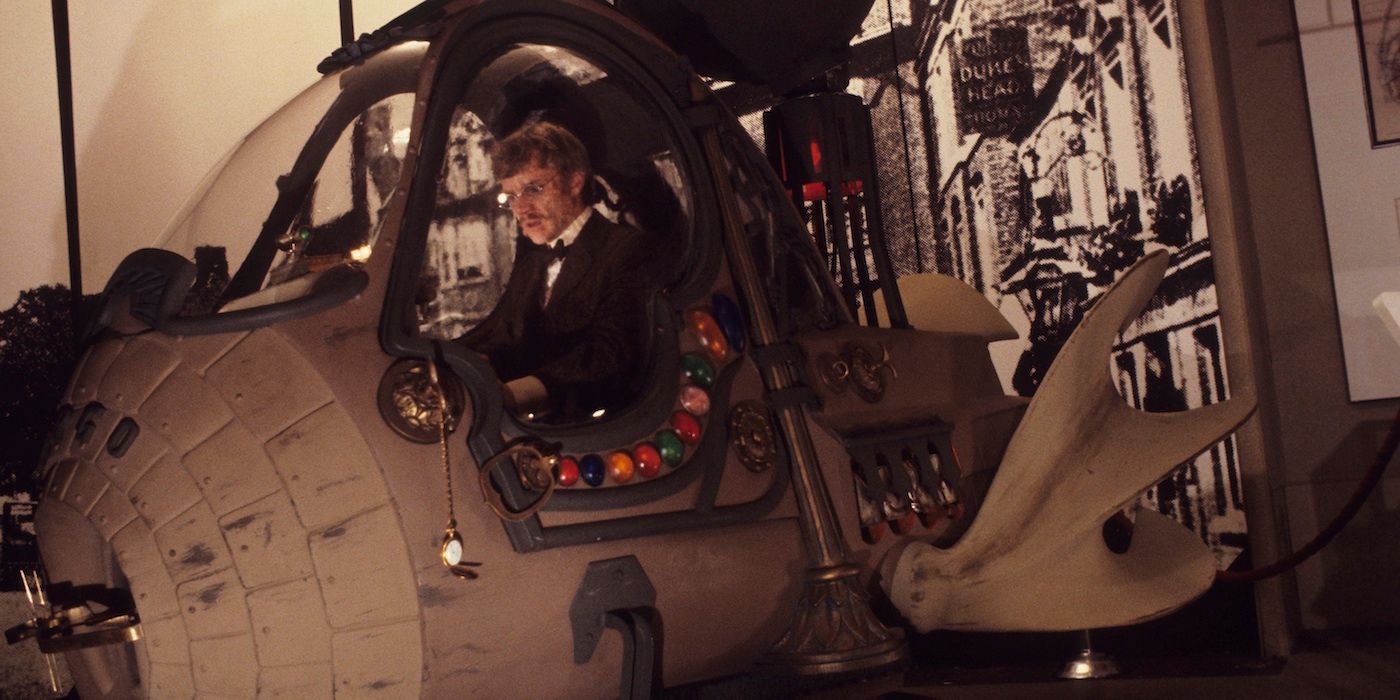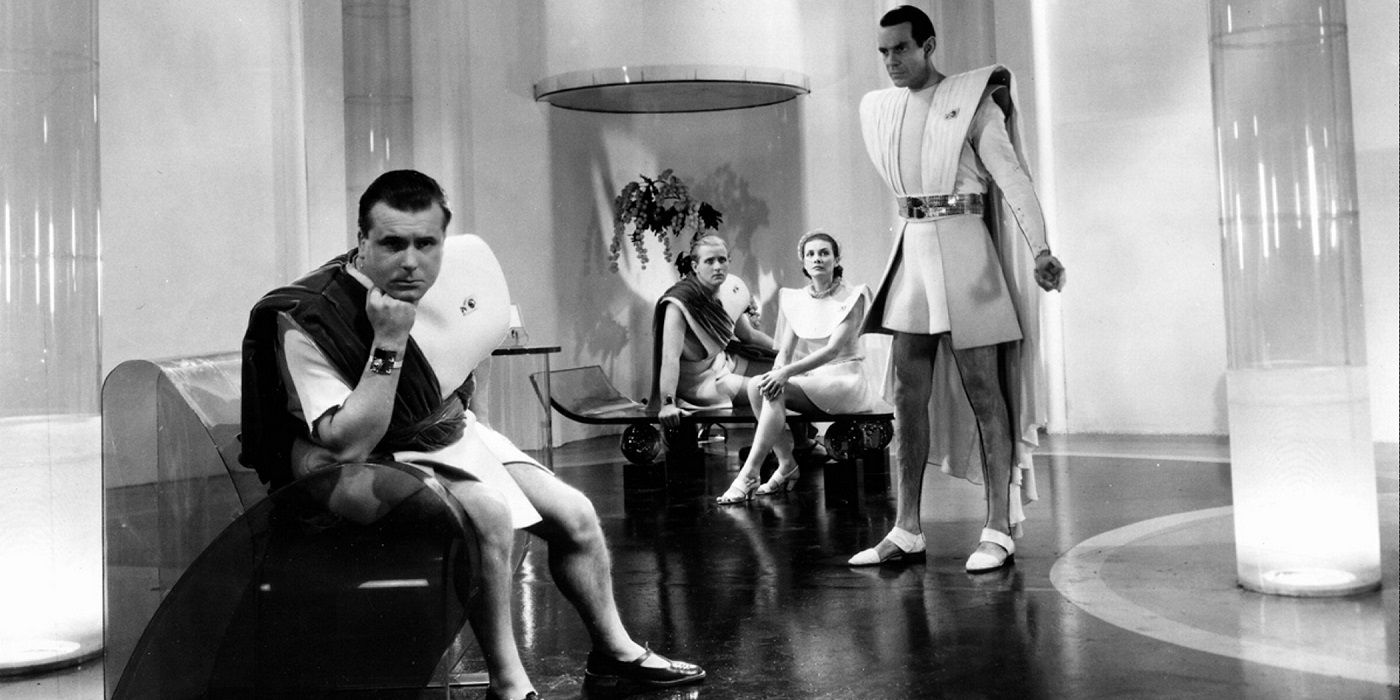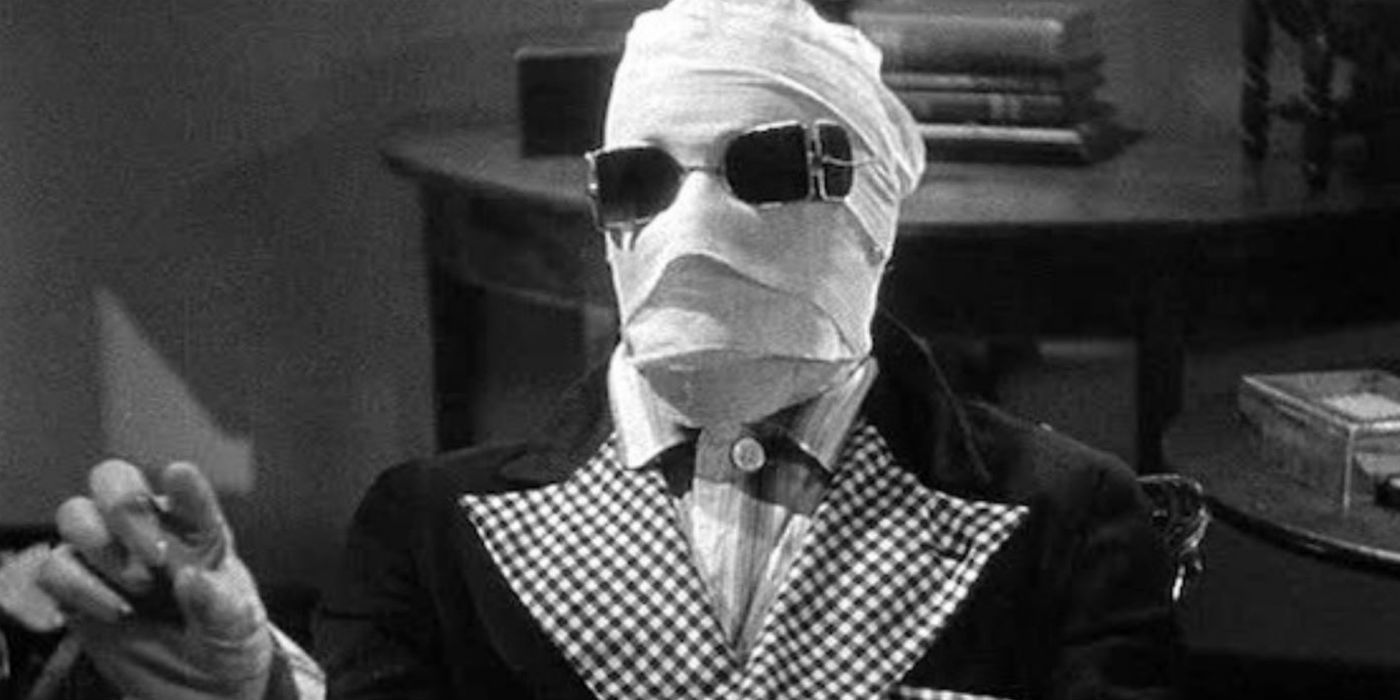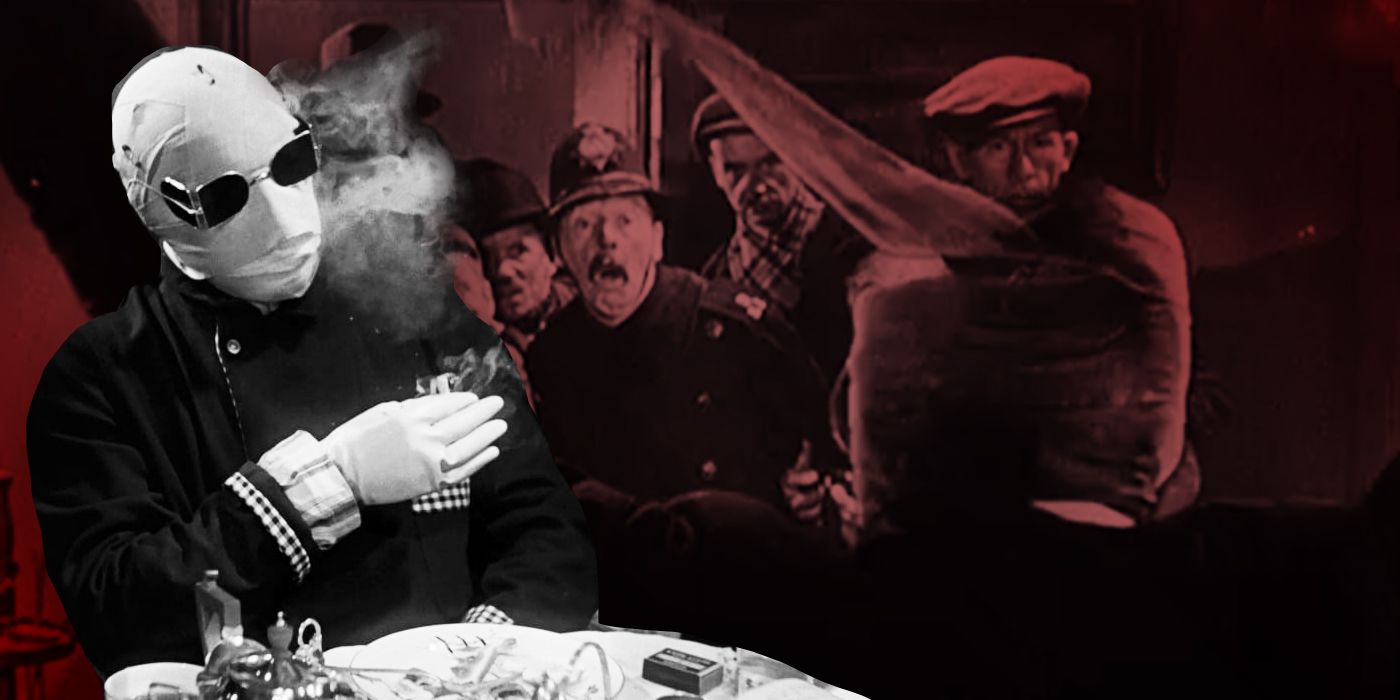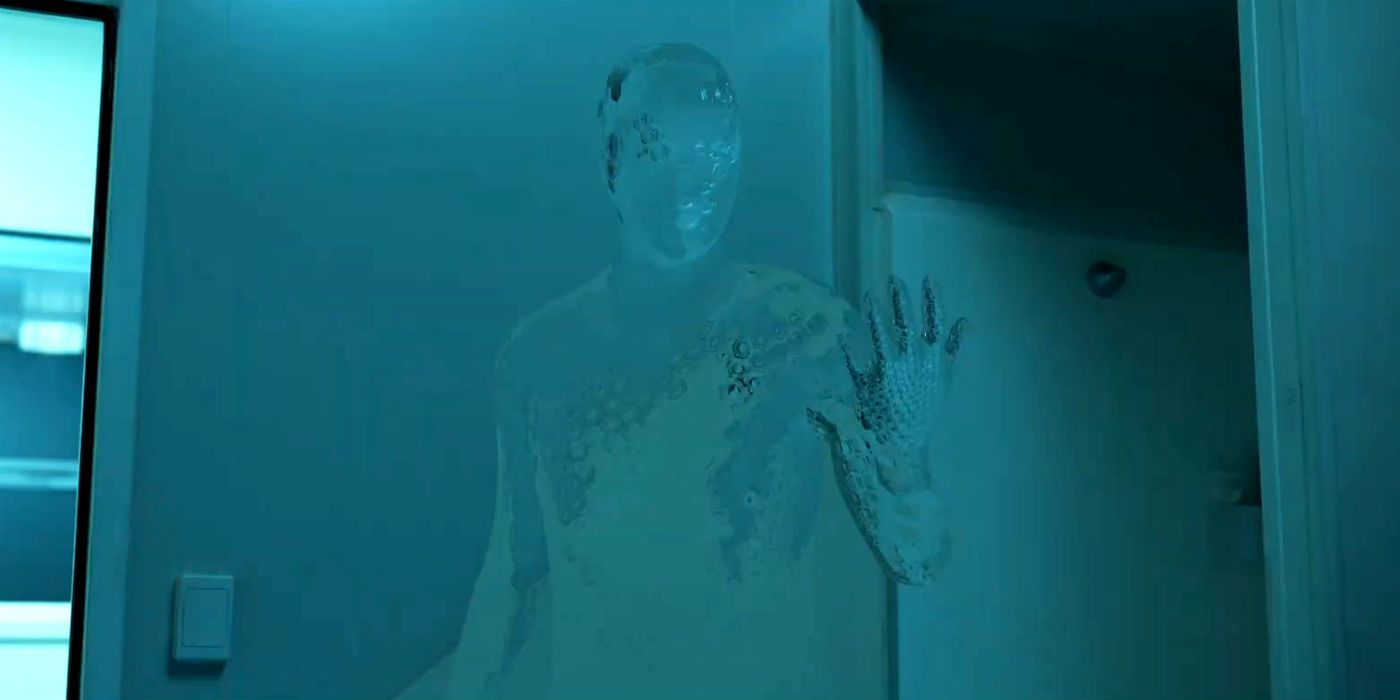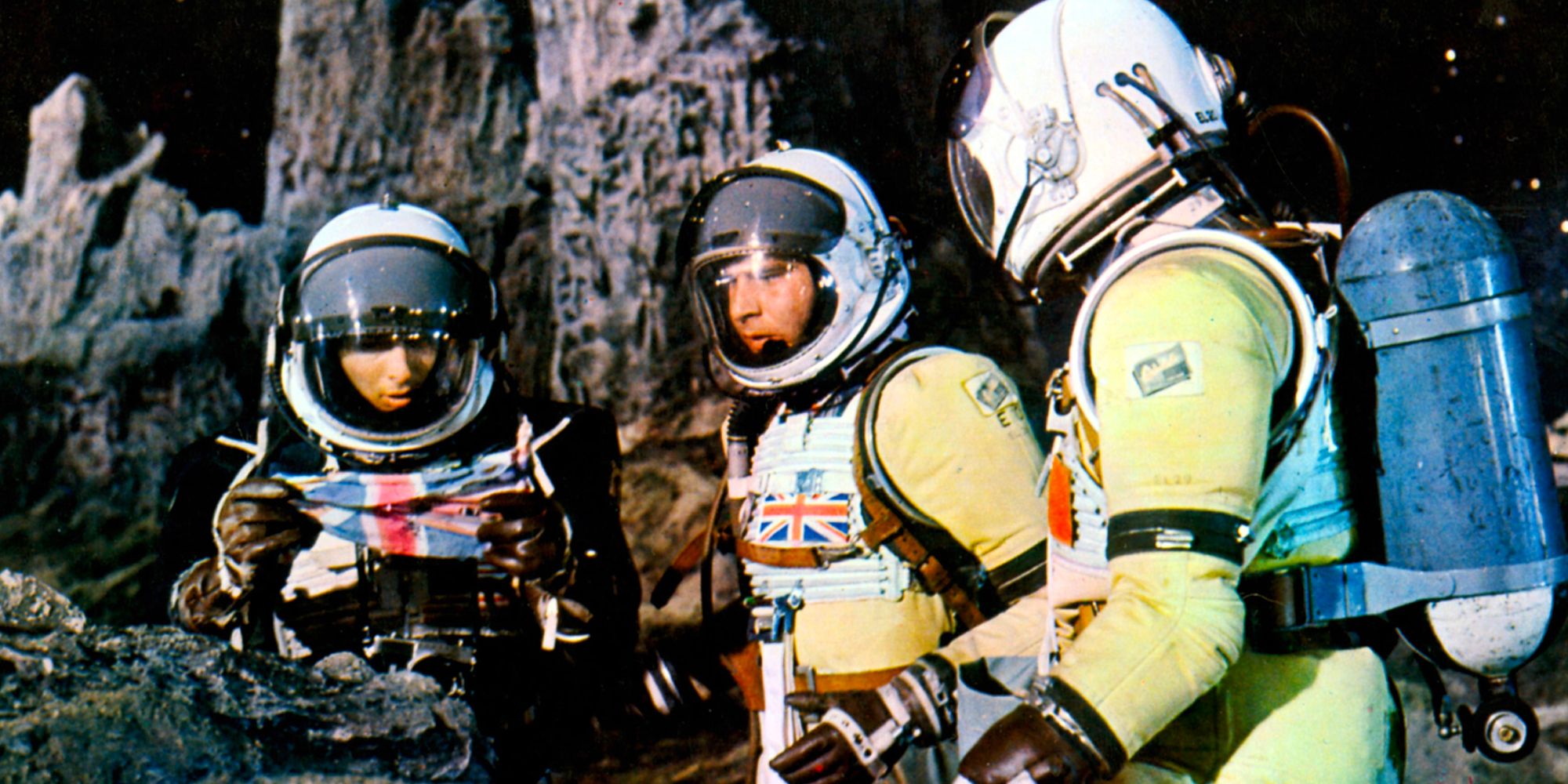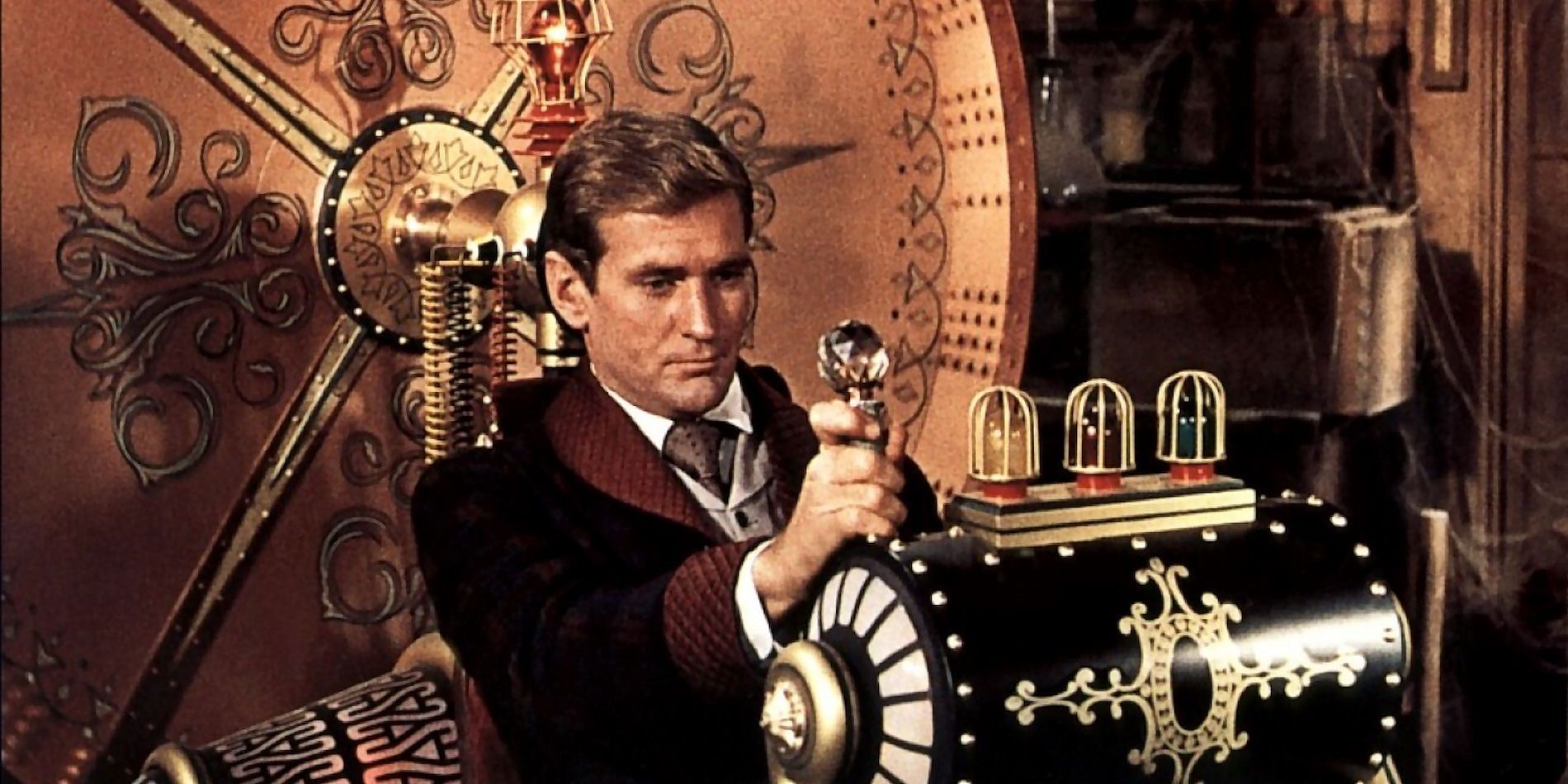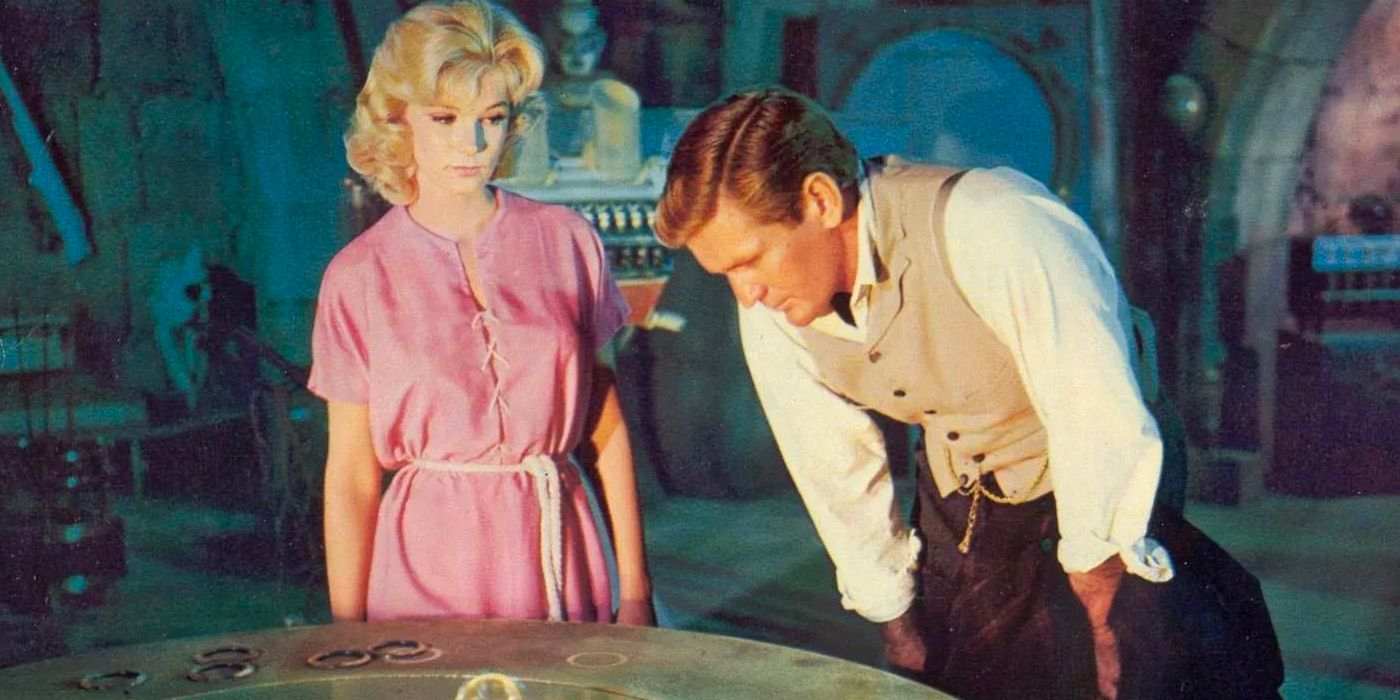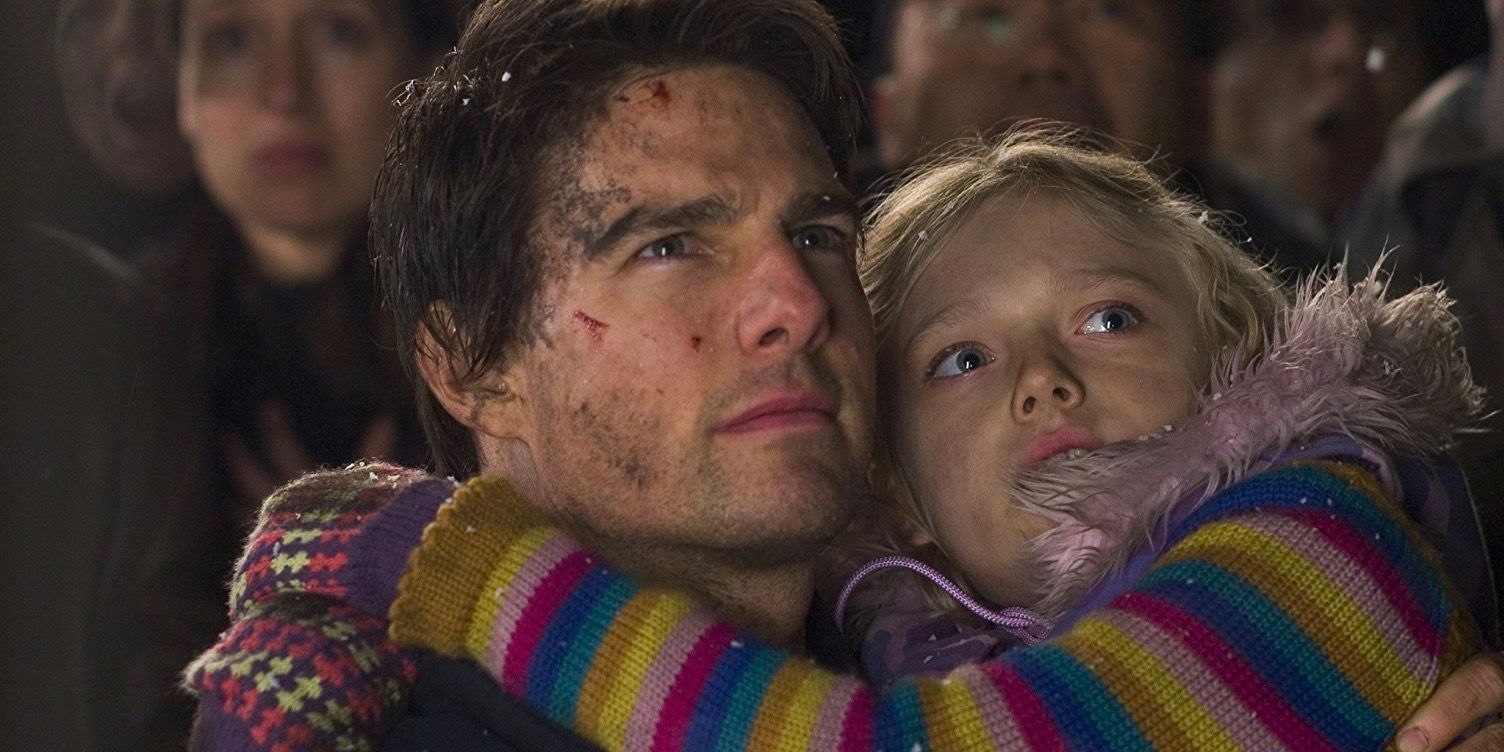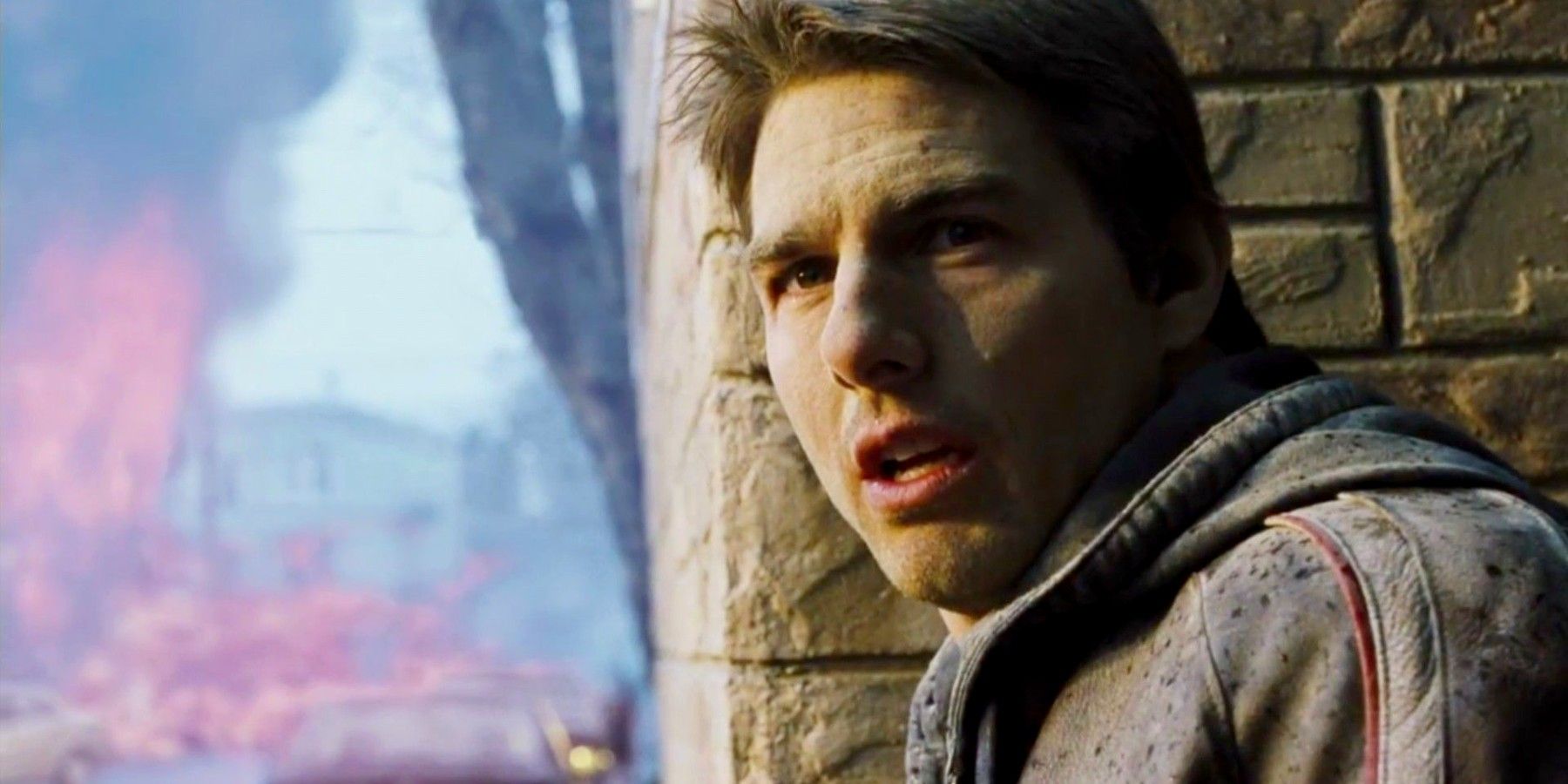
Top 9 Cinematic Tributes to H.G. Wells: The Pioneer of Science Fiction

A journey through the remarkable adaptations of H.G. Wells' groundbreaking sci-fi stories, exploring how his visionary work shaped the genre and continues to inspire filmmakers today.
9. The Man Who Could Work Miracles (1937)
Starting our top 9 countdown is the fantastical tale of 'The Man Who Could Work Miracles'. Adapted from Wells' short story published in 1898, the film explores the consequences of absolute power when an ordinary man is granted the ability to perform miracles. This 1937 film blends fantasy with Wells' signature scientific themes, presenting a narrative that challenges the concept of human worthiness and the ethical use of power. The adaptation expands on the original story, creating a feature film experience that holds true to the underlying questions Wells posed about humanity's potential and limitations.
the man who could work miracles 1936 hg wells movie adaptation
Although it leans towards fantasy, the film serves as a testament to Wells' ability to transcend genres, proving that his works are not confined to traditional science fiction boundaries. The film's critical reception was mixed at the time of its release, but its legacy endures as a significant piece of early science fiction cinema that reflects Wells' diverse literary contributions to both science fiction and fantasy.
8. The Island Of Dr. Moreau (1977)
At number 8, 'The Island Of Dr. Moreau' stands as a pivotal adaptation, though not without its controversies. This 1977 film takes on the daunting task of bringing to life Wells' unnerving narrative about Dr. Moreau's grotesque experiments. Burt Lancaster's portrayal of Moreau offered a renewed vision of the character, and the story's depths of horror and morality were once again explored on the big screen. Despite the film's ambition, it faced criticism for its special effects, which failed to impress in an era captivated by the visual spectacles of 'Star Wars' and 'Star Trek'.
the island of dr. moreau 1977
Nevertheless, the film's faithful adherence to Wells' original plot and themes proves the enduring appeal of his work. The story's exploration of the boundaries between humanity and monstrosity, as well as the ethical limits of scientific pursuit, remains a cornerstone of science fiction, offering a rich tapestry for filmmakers to interpret and redefine for their times.
7. Time After Time (1979)
Seventh on the list is 'Time After Time', a creative twist on Wells' legacy that features the author himself as a fictional character. This 1979 cinematic experience, based on Karl Alexander's novel, follows H.G. Wells as he chases Jack The Ripper through time using his famous time machine. The film, directed by Nicholas Meyer, stars Malcolm McDowell as Wells, offering a captivating portrayal of the author in a thrilling cat-and-mouse chase across eras.
Malcolm McDowell as H.G. Wells in Time after Time (1979)
The film's clever blend of historical fiction, romance, and science fiction celebrates Wells' influence by incorporating elements of his works into the plot. 'Time After Time' received widespread acclaim for its imaginative premise, strong performances, and engaging narrative, proving that Wells' impact on science fiction extends beyond his own written stories and into the very fabric of the genre's evolution.
6. Things To Come (1936)
Landing at number 6, 'Things To Come' is a film that offers a glimpse into a prophetic vision of the future, based on Wells' 1933 work 'The Shape of Things to Come'. The film delves into social and political developments, speculating on the potential trajectory of human society. What sets 'Things To Come' apart is its basis in a non-fiction discussion by Wells, presented in the form of a novel, a rarity for its time.
THINGS TO COME Future scenes
Upon its release, the film garnered critical acclaim, with its thought-provoking ideas resonating with contemporary audiences and remaining relevant even today. 'Things To Come' stands as a testament to Wells' visionary thinking and his ability to craft narratives that not only entertain but also stimulate intellectual curiosity and debate about the future.
5. The Invisible Man (1933)
At the halfway point of our list, the 1933 adaptation of 'The Invisible Man' shines as a landmark in visual effects and storytelling. This early cinematic adaptation brought to life the tale of Dr. Jack Griffin, whose invisibility leads him down a path of madness and mayhem. The film's groundbreaking effects and Claude Rains' performance as the titular character set a high bar for future science fiction and horror films.
The Invisible Man 1933
The film's success is a tribute to Wells' original story, which explored the psychological impact of scientific advancements on the individual. 'The Invisible Man' of 1933 remains one of the most celebrated adaptations of Wells' work, praised for its originality, quality of acting, and the pioneering special effects that brought an invisible character to life on the silver screen.
The Invisible Man cgi 1933
4. The Invisible Man (2020)
Securing the fourth spot is the modern retelling of 'The Invisible Man', a 2020 film that reimagines Wells' classic tale for a contemporary audience. The film takes a fresh approach to the story, leaning into the horror genre and exploring the darker implications of invisibility. The narrative is a compelling examination of power, control, and the unseen horrors that can manifest in the quest for scientific breakthroughs.
The Invisible Man 2020 Trailer
This adaptation received praise for its comprehensive approach to the sci-fi elements and for providing a complete, chilling vision of what gaining the power to turn invisible might entail in a real-world context. 'The Invisible Man' of 2020 stands out as a significant contribution to the ongoing legacy of Wells' influence on the genre, showcasing the adaptability of his ideas to different times and societal concerns.
3. First Men In The Moon (1964)
Taking the third spot on our list is 'First Men In The Moon', a 1964 adaptation of Wells' 1901 story that predated the actual moon landing by five years. This film captured audiences' imaginations with its depiction of astronauts encountering extraterrestrial life on the moon. The integration of stop-motion animation with live-action was a remarkable feat for its time, creating a visual spectacle that earned the film much praise.
first men in the moon hg wells novel movie adaptation
The story's anticipation of humanity's lunar explorations and the discovery of unfamiliar life forms showcased Wells' prescience and his knack for combining scientific speculation with enthralling storytelling. 'First Men In The Moon' remains a beloved piece of science fiction history, illustrating the timeless nature of Wells' visionary tales.
2. The Time Machine (1960)
Our runner-up is the 1960 film adaptation of 'The Time Machine', a cornerstone of Wells' literary legacy and a seminal work in the science fiction genre. Starring Rod Taylor, the film presents the journey of a brilliant inventor who travels to a distant, post-apocalyptic future where humanity has evolved into two distinct species. The movie's portrayal of time travel and its societal implications captured the essence of Wells' original novella and went on to inspire countless other time travel stories in film and literature.
Rod Taylor operating the machine in The Time Machine (1960)
Wells' creation of the term 'time machine' has left an indelible mark on the genre, and this particular adaptation stands as a tribute to his ingenuity. The film's faithfulness to the source material, combined with the impressive visual effects for its era, solidified 'The Time Machine' as one of the most successful and beloved adaptations of Wells' work.
the time machine 1960 movie
1. War Of The Worlds (2005)
Topping our list is the 2005 blockbuster 'War Of The Worlds', directed by Steven Spielberg and starring Tom Cruise. This adaptation brought Wells' chilling narrative of an alien invasion to life with a modern twist, captivating audiences worldwide and earning an impressive $603 million at the box office. The film's intense portrayal of an advanced species threatening earth's existence resonated with contemporary fears and showcased the universal themes present in Wells' original novel.
Tom Cruise and Dakota Fanning as Ray and Rachel Ferrier hugging but looking at something in War of the Worlds
Spielberg's 'War Of The Worlds' is a testament to the enduring power of Wells' storytelling and his foresight into the human condition when faced with existential threats. The film's success highlights the timelessness of Wells' speculative fiction and his role as a pioneer of the science fiction genre, whose works continue to inspire and terrify new generations of audiences and filmmakers alike.
Tom Cruise in the War of the Worlds
